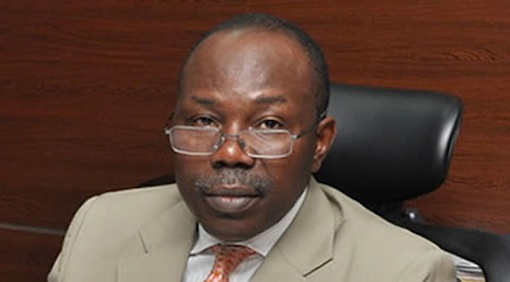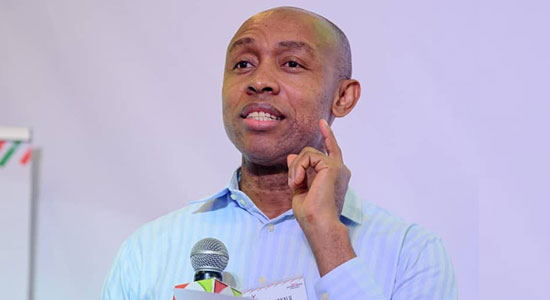Contempt Question And Reawakening Of The Judiciary

By Muiz Banire SAN
By the Constitution of the Federal Republic of Nigeria, 1999 (as amended), the judiciary is the arm of the of government charged with the administration of justice through the interpretation of the law. The responsibility transcends the resolution of disputes among citizens to the disputes between citizens and the government, and disputes among arms and levels of government and its agencies. Thus the judiciary constitutes the bedrock of democracy where such is the practiced. Nigeria, as a supposed democracy, though in my view just a civilian administration, is no exception to this rule. Hence, the judiciary in Nigeria plays a vital role in the sustenance of the governance in the country. In order to discharge this duty, the Constitution of Nigeria provides for the independence of the judiciary so that it can act without fear or favour in the dispensation of justice.
In this regard, judges who are in the front line of the delivery of this service are meant to be courageous, impartial, fair and incorruptible. However, in reality, this remains a mirage as the judiciary in Nigeria is castrated largely by the other arms of government, the executive and the legislature. Through the denial of financial autonomy to the judiciary and the impoverishment of judges, the judiciary is substantially subdued by the executive and, by extension, the National Assembly. As an institution and as judges, they frequent the executive cap-in-hand most times for their survival. By the principle of separation of powers, the judiciary is meant, as constitutionally provided for, to be the third arm of government in Nigeria. However, in reality, the judiciary is regarded and treated as an agency of the executive, or even at times a unit of the Ministry of Justice. Thus, over time, the judiciary has become submissive to the executive to a certain extent. In the exercise of the powers conferred on the court in the enforcement of its orders, judges can hold any party before it that is in violation of its order or judgment in contempt and apply the necessary sanction. Violation of court orders or disobedience of judgments could amount to contempt, which simply connotes disregard for court order.
The court, in order to uphold the dignity of the institution, are, therefore, empowered to evoke its coercive power to enforce these orders. Parties, in order to avoid incurring the wrath of the courts, are, therefore, expected to comply with such orders. This was the understanding of all parties before the courts in the past and in which they all complied. That was the story of our historical past, until recent times when the narrative began to change for the worse. Parties started disobeying court orders with impunity. Of course, no citizen party to a case dared violate a court order until the government, as an institution, started setting the pace for disobedience of court orders.
Today, it is substantially a pattern in Nigeria for the government, in one form or the other, to ignore court orders. Examples abound all over the land, the most recent being the order of injunction restraining the inauguration of the board of Niger Delta Development Commission (NDDC). The situation has degenerated so much so that citizens hardly want to institute cases against government, particularly at the state level, when their rights are violated. The belief is either that the might of government would not permit justice to be dispensed, and/or where done the government as a party would not respect the outcome of such proceedings. Again, this is no speculation among the citizens nor is it delusional nor exaggerated. If the truth must be told, even a sizeable number of legal practitioners experienced and concurred with this position. The worst institutions in the disobedience of courts orders fall within the law enforcement agencies. Is it not a contradiction that the institutions of government that are meant to uphold the law are the guiltiest of the breach of the law in this regard?
They are meant to be security agencies but yet they are the institutions that promote anarchy in the land. Unfortunately, as remarked above, over time, the courts themselves seem to have surrendered to the lawlessness. It is not unusual for a judge to ask in open court if the government will obey his order if given. This was the situation the country found itself in until the later part of the year 2022 when, suddenly, there seemed to be a tumultuous directional change by the judiciary. In my view, it appears to be a revival or a reawakening of the institution. The scenario above depicts how the rule of law in Nigeria has, therefore, been put in jeopardy. The rule of law, as postulated by A.V. Dicey, connotes basically the supremacy of the law over and above every member and authority in a society. As rightly put by Aristotle, “it is better for the law to rule than one of the citizens.”
If I may digress a bit, the rule of law gives birth to the institutions and all institutions are, therefore, expected to uphold and promote the rule of law. Regrettably in Nigeria, the converse is the situation. The institutions revel in the abuse of the rule of law. That explains why virtually all the institutions in the country are weak as against individuals in government that are daily strengthened. No country that generates and promotes strong individuals, as against strong institutions grows, much less survives. Nigerians should, therefore, not be surprised on the state of the country, which seems to retrogress daily. Except, therefore, there is redemption of the rule of law, the recovery and growth of the country will remain imperiled. Thus, it is heartwarming to see some courts in the period alluded to above, upholding the rule of law and compelling compliance with court orders vis-a-vis the security agencies.
The first in the series is the committal of the Economic and Financial Crimes Commission (EFCC) chairman for contempt until he purged himself by Hon. Justice Chizoba N. Oji of the High Court of the Federal Capital Territory in Suit No. FCT/HC/CV/184/2016 between Federal Republic of Nigeria v. AVM Rufus Adeniyi Ojuawo. The second is the committal of the Inspector-General of Police by Hon. Justice Mobolaji Olajuwon of the Federal High Court, Abuja Division, for the period of three months in Suit No. FHC/ABJ/CS/637/2009 between Mr. Patrick C. Okoli v. IGP and the third is that convicting the Chief of Army Staff for contempt until he purged himself by a High Court in Minna per justice Halima Abdulmalik in Suit No. NSHC/225/2019 between Adamu Makama & 42 Ors v. Executive Governor of Niger State & 7 Ors.
In each of the cases, the strangeness of the pronouncement depicted the conspicuous space and traction it gained in the news media. It was something in the recent past unthinkable and unheard of. Thus the public welcomed the development with applause and excitement. Hitherto, Nigerians already signed off with the impression that such convictions would go the way of the others as nobody dared enforce the orders against the helmsmen of these agencies. In the contemporary public discourse, however, it was satisfactory that the pronouncements were made in terms of conviction and such will be in the record of the helmsmen permanently. In a global village as we now occupy, it is perceived that it will not only dent the images of these helmsmen globally, it will become a permanent stain and record against them. In fact, it is believed that such could be enforced against the occupants of that office after their exit. I am sure these observations must have sunk that much into the thoughts of the affected officials who did not only comply with the orders involved but offered credible explanation to warrant setting aside the convictions by the various courts.
This is undoubtedly cheering news to Nigerians, that in our existence such things can still happen. I must not fail in recognizing and appreciating the leadership demonstrated by these helmsmen by remedying the complaints and ensuring compliance with the orders. Gone are the days when such contempt orders would be treated with ignominy. This new attitude and direction is certainly the way to go.
If, therefore, in the midst of the frustrations of the courts, the judges can still hold their heads up, in my view, it is a reawakening that deserves the commendation of all Nigerians. We must give kudos to all the judges involved and such other unsung ones that I am oblivious of.
I, therefore, on behalf of millions of Nigerians who are desirous of the entrenchment of the rule of law in our land, praise and thank the aforementioned Judges. This is a trend that must be encouraged. This remains the only way we can sanitize the polity. As in the second connotation of the rule of law by Dicey, “…………. when we speak of ‘the rule of law’ as a characteristic of our country, not only that with us no man is above the law, but (which is a different thing) that here, every man, whatever be his rank or condition, is subject to the ordinary law of the realm and amenable to the jurisdiction of the ordinary tribunals”.
This, Thomas Fuller aptly captured when he said, “Be you never so high, the law is above you”. So, whether you are, the President of the country, legislator, or even a judge administering the law, we are all subordinated to the same set of laws before the same courts. This simply means that when it comes to the rule of law, all animals are equal as put by George Orwell and no animal is more equal than the other. No Nigerian, regardless of office or rank is above the law or courts.
If our purported leaders, who lead to no good, can, at the barest minimum, start setting example for the citizens by way of respect for the rule of law, then a new dawn of greatness is set for the country. In addition, this will engender confidence in the foreign investors the country is pursuing all over the world. This is the justification for the judicial intervention in instances of disobedience of court orders which is an aberration. Our courts must, therefore, not shy away from this bounding and sacred duty of treating all parties before them equally, regardless of their status. This new trend must become a pattern through the braveness of other judges in enforcing their orders against any violator, regardless of status. This is my simple admonition by way of appreciation of the new positive trend by our courts. God bless the judiciary and the judges.



